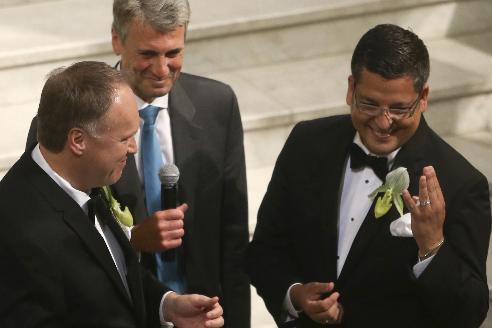Yesterday, I was sent a link to an appalling photograph: one of those standard trophy shots of a group of grinning idiots standing over the corpse of an elephant they’d sportingly murdered with their great big manly guns. There’s a whole gallery of cheerful assassins, if you want to see; I don’t recommend it. It’s basically a lot of rich white people who have paid to be coddled for a week while they safely point a high-powered rifle at a large, relatively rare and fragile creature and destroy it.
But one thing caught my eye. It is a small thing, but it added an additional frisson of disgust to the page. It was this banner:
Yep, it’s the Provider for Christ Hunting Adventure. They’ve taken a revolting act of senseless destruction and made it even more repugnant by justifying it with Jesus. For the low price of $2395 you get to fulfill this goal:
Goal: To Support the creation of new and more energized Providers for Christ, and the families of men and women based on Biblical principals [sic].
Oh. Biblical principles. So they hunt wildebeest and Cape Buffalo with bows and spears, possibly from the deck of a chariot? That would be a fair fight, and I would encourage more Christians to demonstrate their courage and battle lions with an assegai.
Wait, no, that’s not what it is: they’re still using great big guns to execute the local wildlife. What makes it Christian is that they get doped up on sanctimony by including local ministers who harangue the participants in seminars, and then they give the meat from the animals they kill to orphans at a squatter’s camp. Which does lead me to wonder what’s done with the meat on non-Jesusy safaris; it’s left to rot?
I have a suggestion: camera safaris. Support conservation organizations. Promote economic fairness and political stability, rather than palliation by numbing people with god. Don’t give more money to rich people with helicopters who are exploiting the environment.
How about putting the Christ Hunting Adventure out of business? I know, that won’t happen — there are far too many Christian assholes out there.





